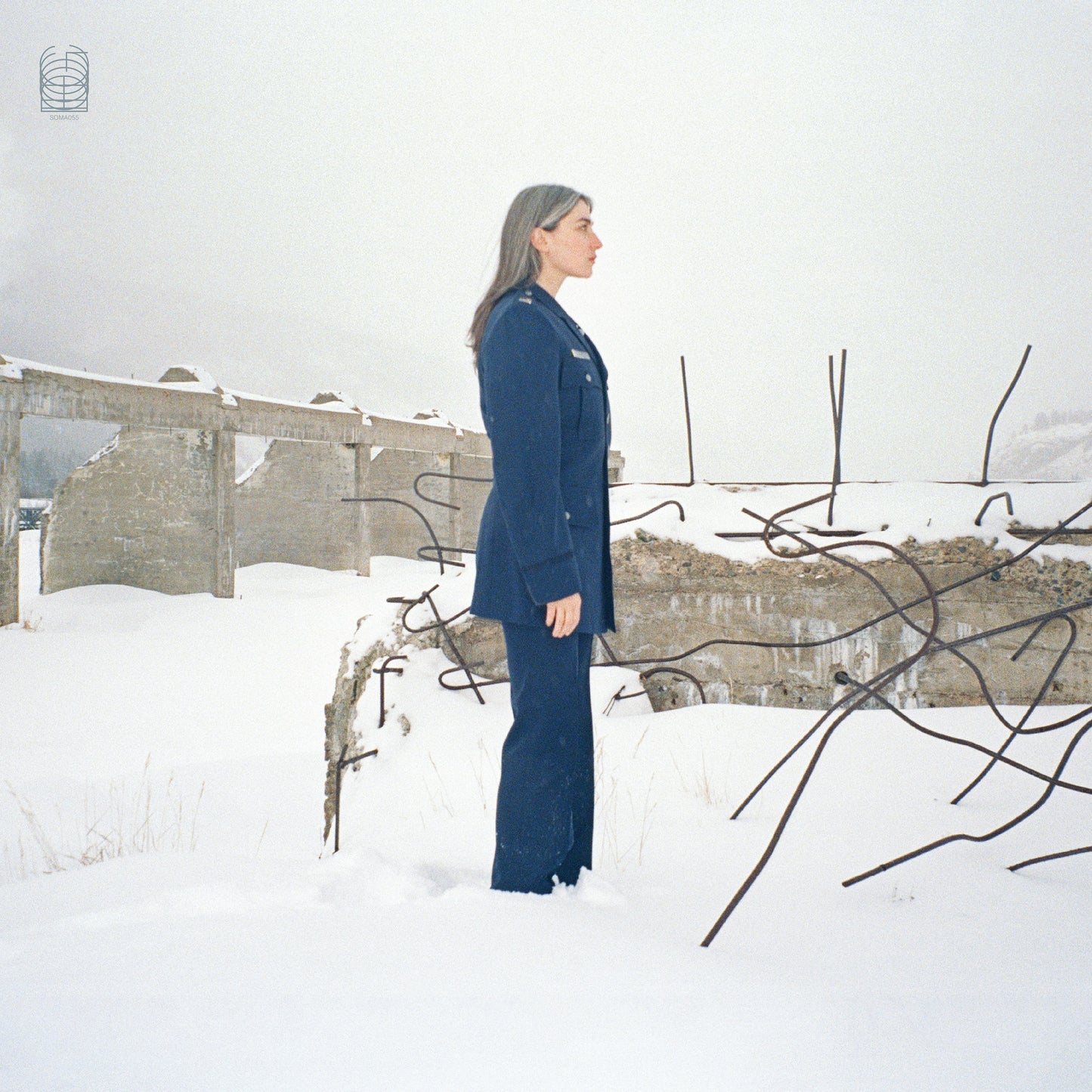All Life Long Kali Malone
All Life Long Kali Malone
Ideologic Organ
Couldn't load pickup availability
Kali Malone’s long awaited new solo album of composition for choir, pipe organ and brass ensemble, following her acclaimed breakthrough album “The Sacrificial Code” (2019).
High Quality pressing cut at Schnittstelle. 2xLPs housed in gatefold sleeve with a 8pp booklet. CD housed in 6 panels digisleeve with a 16pp booklet.
The music of “All Life Long” will be performed as a whole in major concert halls and venues in Europe in 2024. Kali Malone’s anticipated new album “All Life Long” is a collection of music for pipe organ, choir, and brass quintet composed by Kali Malone, 2020 - 2023.
Choral music performed by Macadam Ensemble and conducted by Etienne Ferschaud at Chapelle Notre-Dame-de-L’Immaculée-Conception in Nantes. Brass quintet music performed by Anima Brass at The Bunker Studio in New York City. Organ music performed by Kali Malone and Stephen O’Malley on the historical meantone tempered pipe organs at Église Saint-François in Lausanne, Orgelpark in Amsterdam, and Malmö Konstmuseum in Sweden. Kali Malone composes with a rare clarity of vision. Her music is patient and focused, built on a foundation of evolving harmonic cycles that draw out latent emotional resonances.
Time is a crucial factor: letting go of expectations of duration and breadth offers a chance to find a space of reflection and contemplation. In her hands, experimental reinterpretations of centuries-old polyphonic compositional methods become portals to new ways of perceiving sound, structure, and introspection. Though awe-inspiring in scope, the most remarkable thing about Malone’s music is the intimacy stirred by the close listening it encourages.
Malone’s new album All Life Long, created between 2020 - 2023, presents her first compositions for organ since 2019’s breakthrough album The Sacrificial Code alongside interrelated pieces for voice and brass performed by Macadam Ensemble and Anima Brass. Over the course of twelve pieces, harmonic themes and patterns recur, presented in altered forms and for varied instrumentation. They emerge and reemerge like echoes of their former selves, making the familiar uncanny.
Propelled by lungs and breath rather than bellows and oscillators, Malone’s compositions for choir and brass take on expressive qualities that complicate the austerity that has defined her work, introducing lyricism and the beauty of human fallibility into music that has been driven by mechanical processes. At the same time, the works for organ, performed by Malone with additional accompaniment by Stephen O’Malley on four different organs dating from the 15th to 17th centuries, underscore the mighty, spectral power that those rigorous operations can achieve.
All Life Long simmers in an ever-shifting tension between repetition and variation. The pieces for brass, organ, and voice are alternated asymmetrically, providing nearly continuous timbral fluctuation across its 78-minute runtime even as thematic material reiterates. Each composition’s internal framework of fractal pattern permutations has the paradoxical effect of creating anticipated keystone moments of dramatic reverie and lulling the listener into believing in an illusory endlessness.
On an even more granular level, the historical meantone tuning systems of each organ used, and the variable intonation of brass and voice, provide further points of emotional excavation within the harmony. The titular composition “All Life Long” appears twice on the album, first as an extended canon for organ and again in the final quarter, compactly arranged for voice. In the latter, Malone pairs the music with “The Crying Water” by Arthur Symons, a poem steeped in language of mourning and eternity.
For organ, “All Life Long” moves with a patient stateliness, the drama concentrated in moments when shifting tonalities generate and release dissonance and ecstasy. For voice, each word is saturated with feeling, the singers swooping gracefully downward to capture the melancholy of the narrator’s relationship to the timeless tears of the sea.
“Passage Through The Spheres,” the album’s opening piece, contains lyrics in Italian pulled from Giorgio Agamban’s essay In Praise of Profanation. In it, Agamban defines profanation as, in part, the act of bringing back to communal, secular use that which has been segregated to the realm of the sacred, a process Malone enacts each time she performs on church organs.
This is not music of praise, or of spiritual revelation, but it is an artistic enactment of translating the indescribable. It carries the gravity of liturgical chant, and its fixation on the infinite, but draws its weight from the earthly realm of human experience. A music that draws the listener into the present moment where they can discover themselves within the interwoven musical patterns that can come to resemble the passage of days, weeks, years, a lifetime.
Tracklisting:
1. Passage Through The Spheres
2. All Life Long (for organ)
3. No Sun To Burn (for brass)
4. Prisoned On Watery Shore
5. Retrograde Canon
6. Slow of Faith
7. Fastened Maze
8. No Sun To Burn (for organ)
9. All Life Long (for voice)
10. Moving Forward
11. Formation Flight
12. The Unification of Inner & Outer Life
Share


